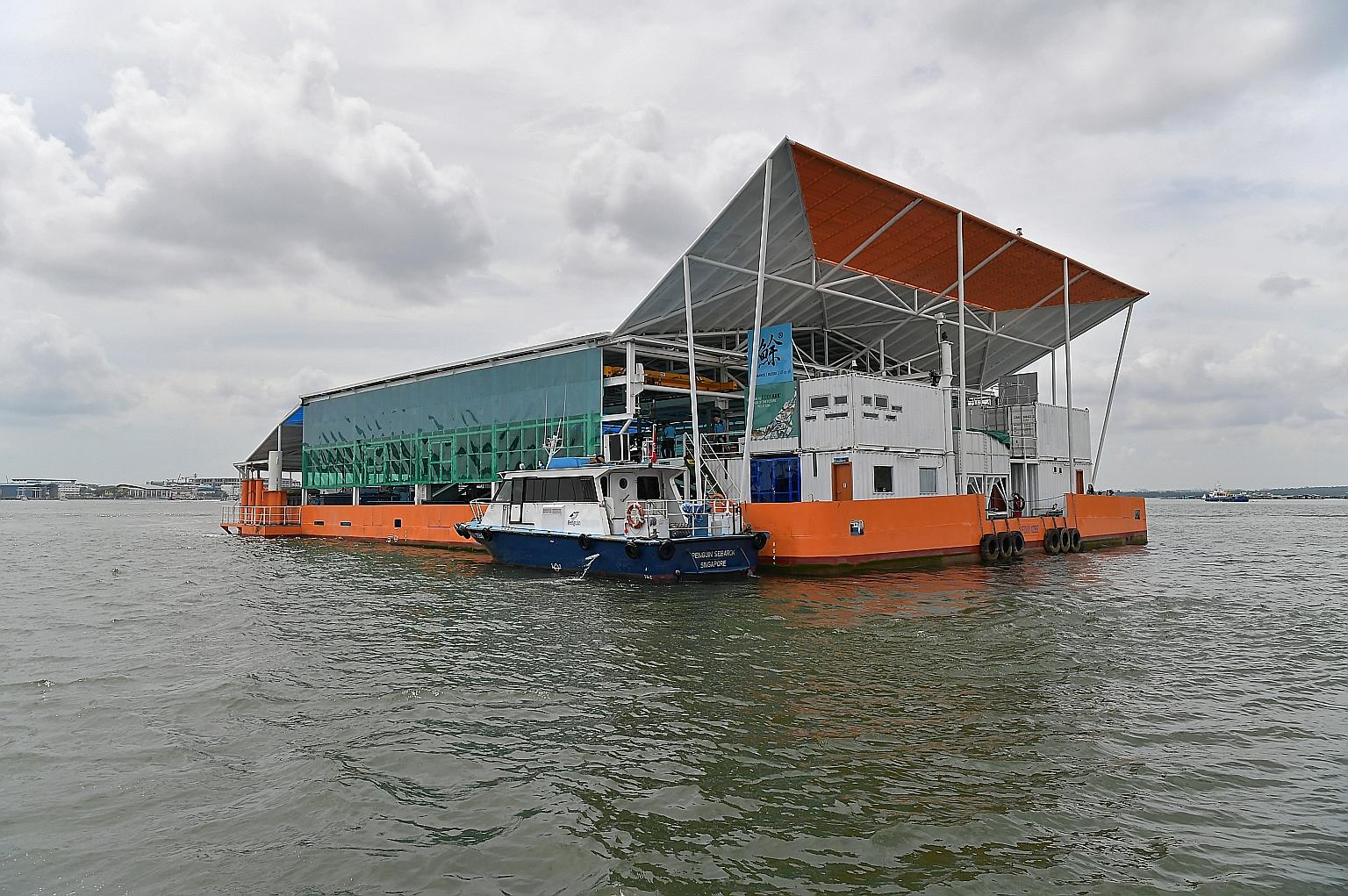Budget 2021 Emerging stronger
New $60m fund to boost food production by harnessing tech
Use of technology could cushion agriculture sector from the impact of climate change
Sign up now: Get ST's newsletters delivered to your inbox

ECO-ARK
Follow topic:
Some $60 million will be set aside for a new fund to help farmers better harness technology in local food production, Deputy Prime Minister Heng Swee Keat said yesterday.
"Technology is a game changer and will open new possibilities. We harnessed technology to overcome our water and land constraints, and will do the same for climate change," he said.
The symptoms of climate change include more frequent extreme weather events, which could disrupt global supply chains and threaten global food production.
But the use of technology could cushion the agriculture sector from erratic rainfall patterns and climbing temperatures.
The new fund, called the Agri-Food Cluster Transformation Fund, will replace the existing Agriculture Productivity Fund, said Mr Heng, who is also the Finance Minister.
The Agriculture Productivity Fund is administered by the Singapore Food Agency and was set up in 2014 to help farmers boost yields and increase production capabilities.
More details on the new fund will be announced by the Ministry of Sustainability and the Environment (MSE) during the debate on its budget, said Mr Heng.
The Singapore Food Agency is an agency under MSE.
In his speech, Mr Heng cited Eco-Ark, a high-tech fish farm off the Changi coast. Eco-Ark is a floating fish farm built by the Aquaculture Centre of Excellence with funding support from the Agriculture Productivity Fund.
"With advanced aquaculture technologies, Eco-Ark is able to produce 20 times more output than the average in coastal fish farms. This improves our food resilience, as part of the 30-by-30 goal," Mr Heng said.
This 30-by-30 goal refers to Singapore's target of producing 30 per cent of its nutritional needs through locally farmed food by 2030 - up from less than 10 per cent today.
166 tonnes Amount of fish a year the high-tech fish farm off the Changi coast is able to produce - about 20 times more than the minimum level set for coastal fish farms in Singapore.
The offshore farm, with a total capacity of 96 tonnes, is able to produce 166 tonnes of fish a year - about 20 times more than the minimum level set for coastal fish farms in Singapore.
Unlike a typical kelong where fish are reared in open-net cage-farming systems exposed to the open sea, the fish at the Eco-Ark swim in tanks isolated from the currents.
This means the fish - which include species such as barramundi, red snapper fingerlings and groupers - are safe from threats of open-cage farming, such as oil spills as well as plankton blooms, which, by depleting water of oxygen, caused massive fish deaths in 2014 and 2015.
Noting that sustainability is a journey, not a destination, and that technology would advance over time, Mr Heng said: "Costs and benefits of projects will change, as climate cost is factored in and as technology advances.
"We must continue to stay open and adaptive, and carefully balance our development objectives with sustainability considerations."
Professor William Chen, the Michael Fam Chair professor in food science and technology at Nanyang Technological University, said that while government funding support was important in getting farmers to adopt technology, other factors - such as consumers' receptivity to local produce - were also crucial.
But he added that the renaming of the fund to include agri-food instead of just agriculture could mean that less conventional types of technology, such as farming insects for food, or cultivating meat in bioreactors, could be eligible for funding.
"This much broader scope is better aligned with Singapore's 30 by 30 goal. Taken together, we should see more food sources for greater food security in Singapore," he said.

